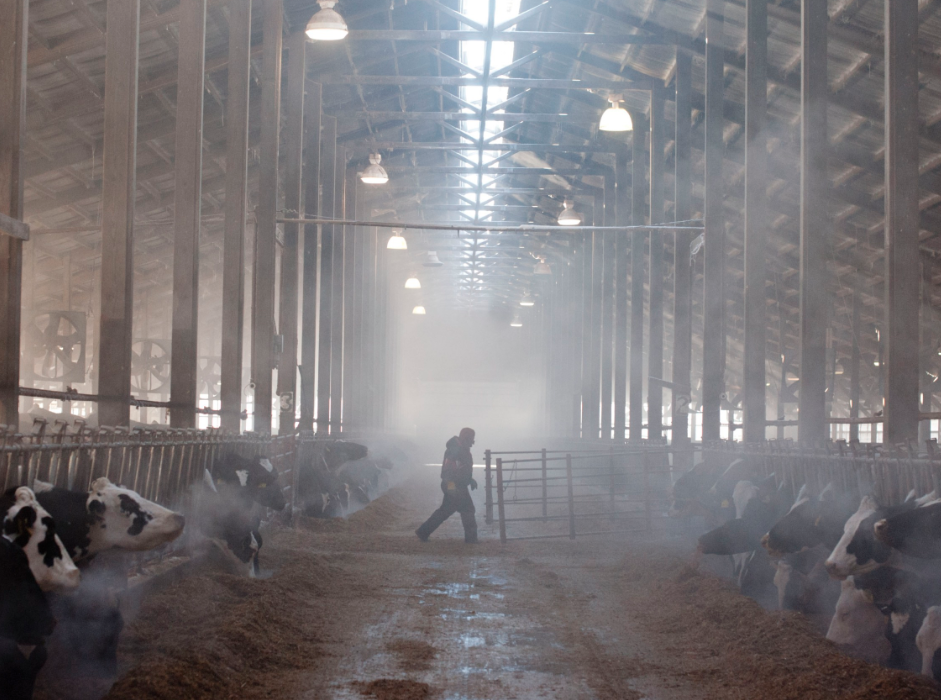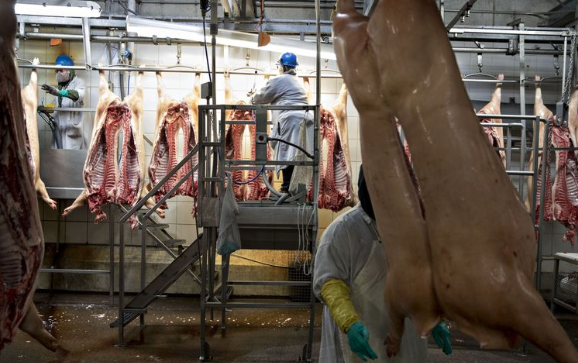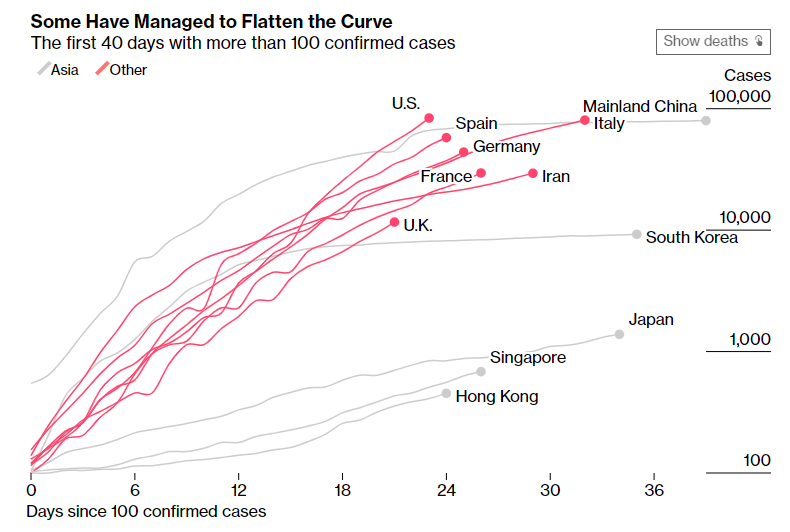Don’t Look Now But The People Responsible For The World’s Food Supply Are Starting To Get Sick
Sanderson Farms, a large poultry manufacturer and Smithfield Foods, the world’s largest pork producer, have both reported their first couple of positive cases of coronavirus.
This raises the obvious question: what happens when people critical to the world’s food supply start to fall ill?
As of now, there has been no such disruption – but it is beginning to morph into a massive threat, Bloomberg notes, with workers in close quarters preparing and processing food globally. Aside from the obvious threat of food not making it to consumers, things like fruits may also wind up rotting in fields if there aren’t enough workers to pick and cultivate them.
Al Stehly, who operates a farm-management business in California’s North San Diego County said: “If we can’t flatten the curve, then that is going to affect farmers and farm laborers — and then we have to make choices about which crops we harvest and which ones we don’t. We hope no one gets sick. But I would expect some of us are going to get the virus.”
And to clarify, it’s not the food itself that causes the threat of the virus. It’s the supply chain disruption that the virus can cause with workers.
Sanderson was lucky in the sense that their one worker only worked at a small table by themselves. But other infections in the industry, where workers are closer together, could wreak more havoc. At some beef plants, workers are “elbow to elbow” and despite the employees wearing protective gear, there still remains risk of contagion.
Dave MacLennan, chief executive officer of Cargill Inc., the world’s largest agricultural commodities trader said: “One of our beef plants feeds 22 million people per day, so it’s vital that these plants stay open.”
Thomas Hesse, president of United Food and Commercial Workers Union Local 401 said: “There’s underlying tension, there’s fear and there’s anxiety.”

And so, as grocery shelves go empty around the globe, food processing companies have stepped up their sanitary procedures, including more hand washing, spraying down plants and wiping down door knobs. Shifts are becoming more staggered and lunch breaks are now taken alone.
Steve Cahillane, CEO of Kellogg Co., has suggested his company will bring in additional workers, if needed, as part of a “mitigation plan”.
Mary Coppola of the United Fresh Produce Association said: “We’re going to see some creative solutions where folks that are being laid off are going to be able to find new opportunities that continue to support the essential critical infrastructure.”
But luring people into the food processing industry may not be as easy as it sounds, especially as the government is mailing people checks specifically to prevent them from going to work. Wages in the industry are generally low and the labor is described as “back-breaking”.

While some major producers have been issuing bonuses or increased pay to their workers to let them know they are appreciated, Vermont dairy farmers have implemented other unusual backup plans. In a call through social media, they simply asked for people to come milk cows if farmers start to get sick. They signed up 80 volunteers as standbys.
Kim Mercer of the Northeast Organic Farming Association of Vermont said: “It started when we got a couple of calls from dairy farmers who were super worried they might get sick and wouldn’t be able to milk their cows, and that would be it — they’d lose their farms. We now have people everywhere all across the state who are ready to go.”
We’re not sure other major food producers will be as lucky…
Tyler Durden
Sun, 03/29/2020 – 07:35
